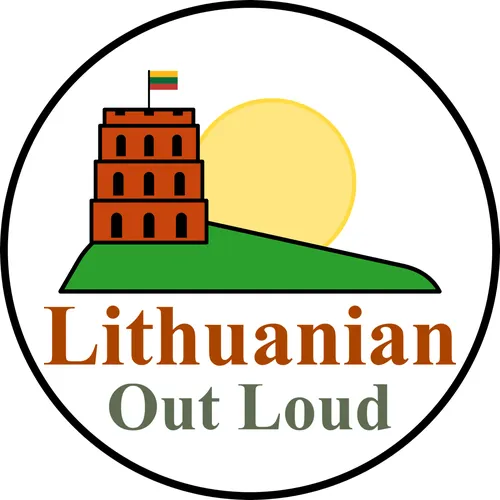Lithuanian Out Loud 0030 - Kristinos Knyga The Book of Kristina
- Author
- Raminta & Jack
- Published
- Wed 31 Oct 2007
- Episode Link
- https://lithuanian.libsyn.com/lithuanian_out_loud_0030_beg_kristinos_knyga_the_book_of_kristina
Just how similar are the Baltic States to one another? Not as much as one might think. The Baltic States are Estonia, Latvia and Lithuania. For starters all three speak different languages and they can’t understand each other. The Latvian and Lithuanian languages were the same language many hundreds of years ago, but not today. The Estonian language is completely different; it’s related to the language of Finland or Finnish. The Estonians and Latvians are mostly Protestant Christians but the Lithuanians are overwhelmingly Roman Catholic. The Lithuanian people are also considered to be the warmest and friendliest people of the three nation region. And by the way, any time somebody says Lithuania is a small country…just gently remind them it’s not that small, it is, after all, larger than Switzerland. For quite a few lessons to come, we’re going to be going through all the ins and outs of the genitive case or kilmininkas. After we finish this series of episodes you should be a real pro at this declension. In theory anyway. As we touched on in episode 0022, when we use the word “from" or iš we need to use kilmininkas. So, let’s take the word “England" or Anglija. This is the nominative case or vardininkas. The word for England in kilmininkas is Anglijos. If we say “from England" we say iš Anglijos. Remember that dictionaries use vardininkas or the nominative case. So, you will find Anglija in a dictionary but you won’t find Anglijos. Lithuanian nouns are either masculine or feminine. In the nominative, feminine nouns mostly end in either –a or –ė. Feminine nouns that end in –a change to –os. Feminine nouns that end in –ė change to –ės. We also use the genitive case or kilmininkas when we talk about possession, such as, Raminta’s book, Sandra’s name, or Lithuania’s capital. You can also look at it as the book of Raminta, the name of Sandra or the capital of Lithuania. For today’s lesson we’ll only focus on feminine nouns. So, let’s start off with Raminta’s book. The word for book is knyga. The –a at the end of Raminta changes to –os. So, Raminta’s book translates as Ramintos knyga. Please repeat and say the Lithuanian – Out Loud… Prašom pakartoti…
Raminta’s book Ramintos knyga
Sandra’s book Sandros knyga
Austėja’s book Austėjos knyga
Kristina’s book Kristinos knyga
Great, now let’s do some nouns that end in –ė. Here are some female names in Lithuanian in kilmininkas. Please repeat… Prašom pakartoti…
Eglė changes to Eglės Agnė changes to Agnės Dovilė changes to Dovilės Ramunė changes to Ramunės
So, please repeat…
Eglė’s book Eglės knyga
Agnė’s book Agnės knyga
Dovilė’s book Dovilės knyga
Ramunė’s book Ramunės knyga
Alright, study hard because on the next lesson we’ll dig even deeper into kilmininkas and it’ll be a more challenging lesson. To see Raminta's article in the newspaper Amerikos Lietuvis, go here: http://www.alietuvis.com/391/vakaru_lt.html
